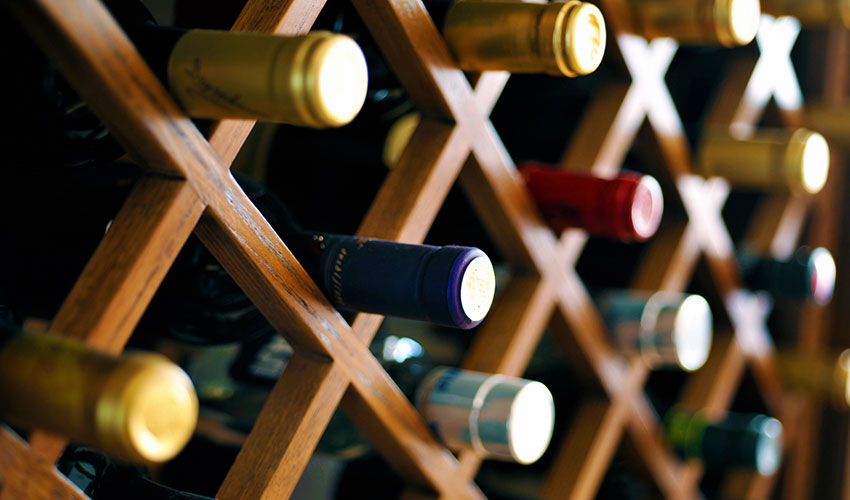Wine is an organic asset with a limited lifespan and a peak drinking time window. It is complex, fragile, and sensitive to many things that can affect its taste and value. Whether you own one bottle of wine or a hundred, make sure you understand what can go wrong with your wine – and what you can do to protect it.
Temperature
Heat is wine’s number one enemy, making it age faster and develop irreversible stewed aromas. When this happens, it is referred to as “cooked” wine. Heat can also cause wine to expand in volume, increasing pressure on the cork, which can compromise the seal and lead to seepage and bacterial contamination. While not as bad as heat, cold temperatures can also damage wine. At -6º to -10º Celsius, wine will freeze and expand, putting pressure on the cork, just like heat.
What to do? Store your wine at a constant temperature between 13-15º C.
Humidity
The relative humidity levels of your wine cellar should range between 60% (to prevent the corks from drying out and cracking) to a high of 80% (to prevent mold from developing and damaging a wine’s label).
What to do? If you’re concerned about humidity fluctuations, you can install either a humidifier or a dehumidifier.

Light
Since light, especially wavelengths like UV, breaks down the complex molecules that contribute to a wine’s desirable flavors, it shouldn’t be exposed to excessive amounts of light. Most wines have built-in protection against the light, with darker colored glass bottles.
What to do? Keep your cellar dark. Use incandescent bulbs instead of fluorescent lights, because they emit smaller amounts of UV waves.
Air quality/ventilation
Because wine breathes through the cork, letting oxygen in over time, it is important that the air in your wine cellar be clean. Otherwise, you risk altering the flavor and bouquet of your wine. Some odorous molecules are benign, while others, like chemical compounds in fresh paint and cleaning supplies, are more harmful. Aromatic food products, like garlic, can also seep into your wine.
What to do? Be careful what you store or do in or near your cellar.

Vibration
As red wine matures, sediment is formed when the solids in the wine (typically tannins) fall to the bottom of the bottle. Excessive vibrations can alter a wine’s composition by reintroducing some of those solids into the liquid, as well as speeding up chemical reactions that should occur slowly.
What to do? Although it may be hard to eliminate vibrations totally, especially in a city environment, it’s best to store your wines away from household appliances.
Source: wineadvise.com
This content is brought to you by Chubb Insurance Australia Limited (“Chubb”) as a convenience to readers and is not intended to constitute advice (professional or otherwise) or recommendations upon which a reader may rely. Any references to insurance cover are general in nature only and may not suit your particular circumstances. Chubb does not take into account your personal objectives, financial situation or needs and any insurance cover referred to is subject to the terms, conditions and exclusions set out in the relevant policy wording. Please obtain and read carefully the relevant insurance policy before deciding to acquire any insurance product. A policy wording can be obtained at www.chubb.com/au, through your broker or by contacting any of the Chubb offices. Chubb makes no warranty or guarantee about the accuracy, completeness, or adequacy of the content. Readers relying on any content do so at their own risk. It is the responsibility of the reader to evaluate the quality and accuracy of the content. Reference in this content (if any) to any specific commercial product, process, or service, and links from this content to other third party websites, do not constitute or imply an endorsement or recommendation by Chubb and shall not be used for advertising or service/product endorsement purposes. ©2020 Chubb Insurance Australia Limited ABN: 23 001 642 020 AFSL: 239687. Chubb®, its logos, and Chubb.Insured.SM are protected trademarks of Chubb.
Tips & Resources
We help you stay ahead and informed with these helpful tips and tricks


